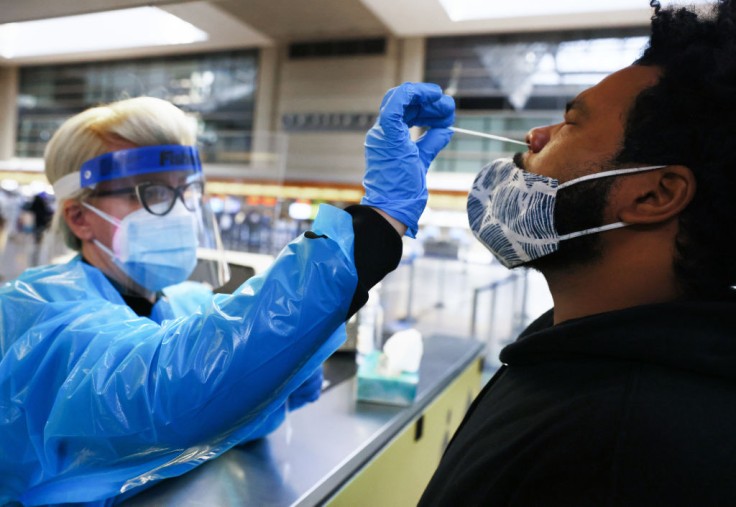
Does being asymptomatic mean you have fewer COVID-19 symptoms, or you have no symptoms at all? According to the Centers for Disease Control and Prevention (CDC), people with COVID-19 may experience various symptoms, ranging from mild illnesses such as cold or scratchy throats to severe symptoms such as chills and difficulty breathing.
Although scientists have more yet to learn about the new variant, scientists know that the Omicron variant of COVID-19 spreads swiftly and results in more asymptomatic cases. According to a COVID Symptom Study wherein researchers track signs of infection through an app, users may contribute to research by reporting their symptoms and how they feel via the application. In the United Kingdom, the participants of the Symptom Study, who are mostly vaccinated, said that symptoms were relatively mild. Only half reported having experienced the COVID-19 "classic three," which includes fever, cough, and loss of taste or sense of smell.
Read Also: Separate Sleeping Arrangement: Hubby Sleeps in Tent, Wife in Bed, but Still Happily Married
Asymptomatic means no symptoms at all
The most obvious telltale sign that you are asymptomatic for COVID-19 is a positive test without the usual symptoms at all. According to the CDC, being asymptomatic means feeling your best self without manifesting the common markers such as loss of taste and smell, cough, fever, headache, among others. According to Stanford University epidemiologist Jorge Salinas, to say that you are asymptomatic means you feel great and are in the best shape.
As published in Reuters, it can be inferred from two South African clinical trials that the Omicron variant has a much higher "asymptomatic carriage" compared to the previous variants discovered. Nonetheless, asymptomatic individuals can still carry the virus and cause its spread. In a study published in Jama Network Open, 40 percent of positive COVID-19 cases are asymptomatic.
Due to its high asymptomatic carriage with very barely noticeable symptoms, the Omicron variant has caused a surge in the number of new infections worldwide, as published in the NY Times. According to the CDC, it is estimated that the Omicron variant now accounts for almost 100 percent of the recent cases in the United States. In contrast to the Delta and other older variants, the Omicron variant moves faster; thus, it creates infections quickly from first exposure to the moment symptoms start to appear.
Most transmissible
The Omicron variant spreads rapidly through populations and multiplies itself 70 times more quickly. According to the preliminary investigation about a Norway COVID-19 outbreak published in Eurosurveillance, the Omicron variant is highly transmissible even among vaccinated people. In the last two years of battling with COVID-19, the world has seen the list of symptoms increase further throughout the pandemic. At present, with the emergence of the new Omicron variant making rounds all over the globe, thresholds of immunity and even the knowledge about COVID-19 are challenged with new findings and discoveries.
Although numerous cases are asymptomatic and only have mild symptoms, people should still be wary. Taking medication for congestion and body pains is one way of managing your symptoms. Taking a test and isolating as needed and ensuring that with or without symptoms is one way to protect others by protecting yourself.